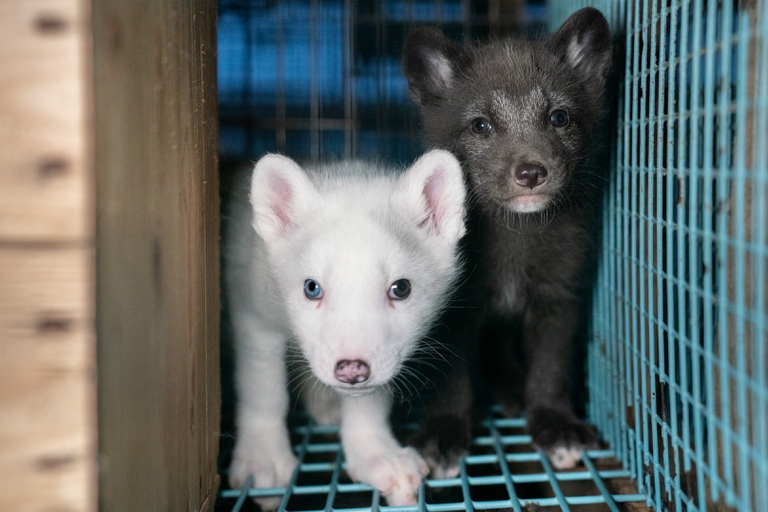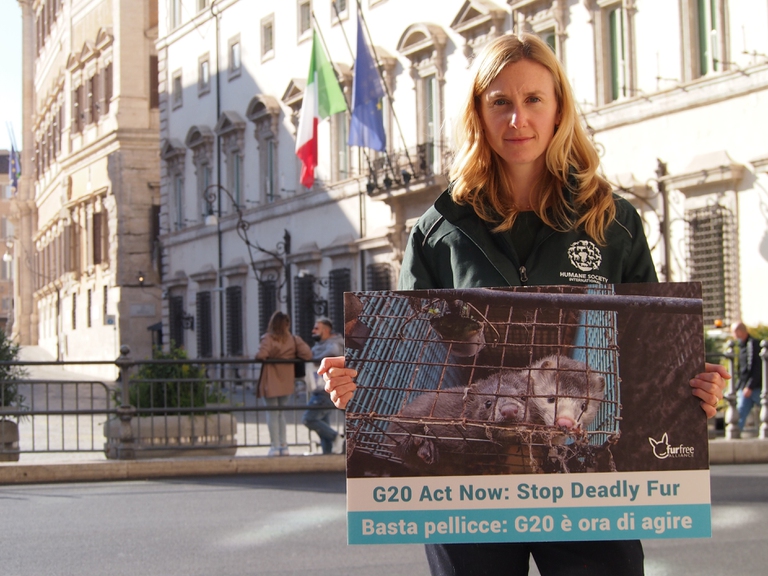https://www.lifegate.it/5700-visoni-ancora-detenuti-in-italia
- |
From the first January this year, as established by the 2022 Budget Law (THE.234 of 30 December 2021, art.1, paragraphs 980-984), in Italy it is forbidden to breed, breed in captivity, capture and kill mink, foxes, raccoon dogs, chinchilla and animals of any species for the purpose of obtaining fur.From the first of July The farms still present are permanently closed.

A historic victory for animal rights
This is a historic victory for which Italian animal rights associations have always fought and which will avoid the exploitation of 60 thousand minks a year (according to data from the last production cycle on Italian farms, i.e. 2019).There are economic, environmental, public health and, last but not least, animal welfare reasons that have led to this ban.I want to believe that our country has finally realized that the persistence of these activities would represent a ethically unacceptable choice and unjustifiable in front of the small economic benefits that it offers to the few people involved.
In fact, come on data that just a year ago we began to collect to give foundation to our political request and demonstrate that an entire sector would not be "brought to its knees", it emerged that in the ten farms still active, of which five without animals due to the COVID-19, there were fourteen employees employed, according to what was reported on the Chamber of Commerce documents.In any case, the text of the law has provided for a compensation to farmers of three million euros in 2022 and another three million in 2023.

More than 5 thousand minks are still held in the closed factories
To date, however, the problem remains that these compensations are blocked and around 5,700 breeding mink are still detained, in derogation and now beyond the deadline of 30 June established by law, in the closed establishments:by law, by 31 January the Minister of Agricultural Policies Stefano Patuanelli (in concert with the Ministers of Health Roberto Speranza and of the Ecological Transition Roberto Cingolani) should have regulated, by decree, not only the criteria and methods of access to compensation for the breeders, but also the possible sale of animals still confined in the factories and their transfer, under certain conditions, to facilities managed directly by animal rights associations or in collaboration with them.
Despite the constant pressure exerted by Humane Society International, together with Being Animals, Work And Leiden and the recent ones reassurances of the Undersecretary for Agricultural Policies in Parliament, there is no news of the implementing decree.This is unacceptable.Five months after the deadline for its publication, and with the deadline for disposal now expired, the minister did not respect the law.In recent months the associations have done everything possible to remind him of his responsibility:we asked for the establishment of a consultation between all the parties interested in the implementation of the legislation, we had it presented parliamentary questions, we met the minister Stefano Patuanelli on 6 May and, lastly, we provided a proposal for minimum structural and management requirements for the detention of mink in structures other than those with commercial purposes.

An uncertain future
Now the government crisis and the dissolution of the chambers present a disconcerting scenario that risks relegating the implementing decree and the minks to oblivion.Until the new government takes office, the current one will remain in office there is no excuse for the ministries to further delay the publication of the decree.I therefore renew my appeal to the Minister of Agricultural Policies Stefano Patuanelli to immediately implement the provisions of the Budget Law, closing the terrible chapter of fur farming in Italy.
